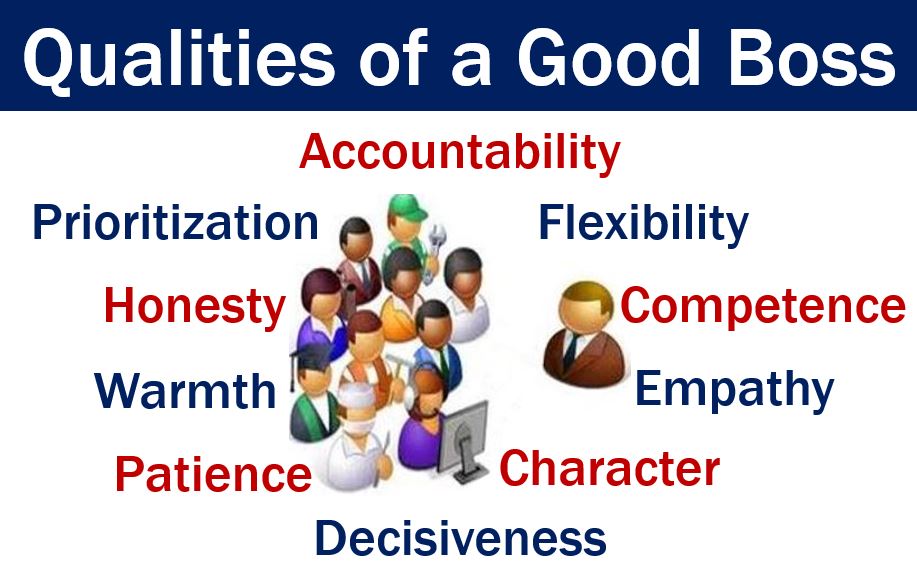A boss is a person who is in charge of other people. Bosses may be overseeing just one person, two people, a group of individuals, or a department. They may also be in charge of a company or even a group of companies. My boss is the person who gives me orders at work. In other words, they tell me what to do.
If John is a supervisor in an office and is in charge of only Paul, he is Paul’s boss. The Finance Director of the world’s largest company considers the CEO as the boss. CEO stands for chief executive officer.
A general manager of one restaurant is in charge of the waiters, salaries, paying bills, purchases, and administration. The restaurant’s general manager is the boss of all its employees. General managers are further down the management ladder than CEOs.
The word is not a formal title. People who employ or superintend workers are their bosses. They make decisions and exercise authority over them.
It means the same as chief, honcho, governor, and immediate superior. It can also mean supervisor, manager, director, leader, head, dean, captain, overseer, or commander.
Theodore Roosevelt Jr. (1858-1919), the 26th President of the United States, once said: “The leader leads, and the boss drives.”
Boss came from Dutch
The term appeared in the English language during the 1600s in America. It came from the Dutch bass ‘a master,’ which originated from Middle Dutch baes. Its origin before that is obscure. Some say it may have come from Old High German basa meaning ‘aunt,’ but other experts disagree.
In the 1620s, the Dutch form baas was the standard title of a Dutch ship’s captain.
During the 1600s, egalitarians in America avoided using the term ‘master.’ Americans also wanted to distinguish slave labor from free labor. The word emerged as a term for the master of non-slave workers.

Today, we use the term with its modern meaning of overseer, manager, chief, or supervisor across the world.
Other meanings
As a verb, it means to tell people what to do. We use it in a negative or complaining way, as in “He bosses us around the whole time. I’ve had enough!” In other words, it is a criticism.
We describe somebody who likes giving orders and does so as bossy.
– To Show Somebody Who’s Boss means to make clear who has the power. We also use this term when we want to stop somebody from getting the upper hand. As in “When you are in charge of a group of children it is very important to show them who’s boss.”
– A Straw Boss is a worker who supervises other workers. However, straw bosses also carry out their regular duties. In other words, the person is a subordinate boss.
– “You’re the boss,” is a common expression we use after somebody has given us an order. It means that the order will be carried out.
We may also use this expression when we think the order is unwise or wrong. However, we are also expressing obedience, i.e. we will obey the order.
Boss in engineering
In engineering, the word may refer to a protruding feature on a work piece. We commonly use it to locate one object within a hole or pocket of another object. For example, some motors use a precisely-machined boss on the front face to locate it on the matching part.
Bosses on castings – like a process on a bone – can provide attachment points or bearing surfaces.
In engineering jargon, bosses may also refer to the finishing edges usually around circular openings. They allow the opening to locate onto (or within) another opening, thus locating or joining two items.
The housing of the rotation spindle in a washing machine drum is a common everyday example of a boss.
